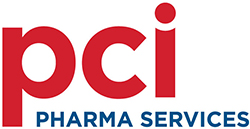Although 2023 has seen a semblance of a return to normality after the last 2 years of turmoil, the efforts that third-party outsourcing partners have had to make during that time in terms of providing both flexibility and continuity of supply are now paying dividends.
They’re positioning themselves well for the new challenges and opportunities that are becoming prevalent in the post-COVID pharma sector.
From emerging trends in personalisation, specialised drugs, new markets and increased digitalisation to globalisation and sustainability, contract development and manufacturing organisations (CDMOs) are constantly seeking ways to meet these new demands.
This needs to be achieved at pace — and cost-effectively — to continue to provide their clients with ever more resourceful, current and resilient services.

Market developments and trends
Unsurprisingly, a number of the emerging trends in the pharma industry that came to fruition during the testing times of the pandemic and the Brexit decision remain relevant and current; growth in both new product sectors and markets continues to develop.
As Sue Ritchie, Executive Director of Global Marketing at PCI Pharma Services, notes: “Vaccines took centre stage during COVID, with the pandemic seeing exponential growth. This accelerated pathway development and the commercialisation of vaccines.”
“However, the vaccine market was already on a growth trajectory prior to COVID. With the increased focus on other diseases, there is a global shortage of capacity in the development, manufacture and further commercialisation of these much-needed new therapies."
"We are continuing to expand our capacity and capabilities in this area, including sterile fill-finish, device development and the cold-chain solutions required to support this growth demand.”
In addition, the more general interest in health and well-being awareness has continued to increase amongst the population, resulting in manufacturers and brands ramping up their levels of activity to meet this demand.
Grant Jones, Wasdell Group’s Business Development Manager, has seen strong evidence of this: “We are seeing an increase in sterile products and biologics, and the personalisation of products for customers with larger packs containing perhaps a month’s worth of doses or vitamins.”
Innovation
Similar growth has been seen in a number of other areas, including oncology and specialty drugs for rarer conditions, as well as the continued expansion of interest in “digital health” to enhance remote patient care.
According to GlobalData, the global oncology market was valued at $85.8 billion in 2018 and is projected to reach $154.9 billion by 2026, representing a compound annual growth rate (CAGR) of 7.7%.
Ritchie sees particular opportunities for CDMOs in this area: “Pharmaceutical companies are investing heavily in digital health solutions to support patients."
"Although many will develop their resources internally, smaller companies will be looking to their external partners to provide guidance and solutions. PCI Pharma Services is well placed to assist with this.”
Supply chain pressures and adaptation
The challenges in supply chain resilience remain a constant concern, but the lessons learned during these unstable times have delivered some long-lasting benefits, as third-party outsourcing partners have evolved agile and effective solutions.

Chris Davison, CEO of Custom Pharma Services, has witnessed this adaptation: “There are still shortages in the supply of some products, but others such as foil, cartons and leaflets are getting better — although costs are increasing. Some raw material suppliers are reluctant to take on new business without the acceptance of higher prices and longer delivery times.”
“Often, owing to regulatory implications, it has not been easy to source onshoring supply chains. However, we are seeing more and more clients securing further manufacturing sites outside of Western Europe.”
A similar fragmentation of traditional supply chain management is noted by Jones: “Challenges remain regarding material availability, lead times and price increases (aggravated by the war in Ukraine and spikes in energy pricing), so customers are often now looking for the dual supply of pharmaceutical products from more than one source."
“Previously, they might have relied on one supplier but are now looking for multiple channels or providers to mitigate delays and ensure continued supply. This dual supplier approach also provides them with an opportunity to secure tighter competitive price points for the provision of products.”
Sustainability and digitalisation
The increasing demand for strong sustainability credentials from both CDMO clients and their customers, and the requirement for it to be a significant constituent of pharmaceutical firms’ environmental social governance (ESG) initiatives, is making it a key issue today.
The onus of these sustainability enhancements lies heavily on CDMOs as clients look to them to provide cost-effective solutions. Often, collaborations with them can lead to improvements in the use of packaging, both in terms of materials and the amount of packaging used.
As Jones comments: “Customers are increasingly leaning on CDMOs to provide help and guidance with packaging, researching ways to ensure that their products can be packed more efficiently and sustainably."
"However, cost is still a strong factor, with customers still needing to be convinced to put sustainability before economy … despite the huge benefits in perception and brand reputation by customers.”
Key to the drive for greater sustainability within the pharma sector is the rapid adoption of digitalisation across all processes, reducing both waste and energy consumption, whilst optimising many factors, including inventory management, administration automation, drug development and, ultimately, the customer experience.
Ritchie regards this as a crucial development: “We have invested heavily in our digital transformation strategy to both develop robust and efficient internal systems and processes as well as a customer-based platforms to provide real-time supply chain data and support the effective delivery of clinical and commercialisation projects.”

Collaboration is key
The significant increase in the use of third-party outsourcing partners during the last few years seems set to continue as brands, manufacturers and retailers recognise the array of benefits that such a partnership delivers.
From unit cost forward planning and reliable supply chain infrastructure to the cost-effective exploration of new markets and the delivery of sustainable alternatives, effective collaboration with CDMOs can provide significant improvements to a host of operational processes.
As Davison notes: “Despite suppliers looking to cut administrative costs, reduce travel and time out of the office, we have been able to maintain strong regular discussions with all our clients."
"Open and engaging conversations provide us with the information and data we need to offer meaningful support to them, in terms of economies, efficiencies and problem mitigation. Truly, we work with our customers, not for them.”
The future
Clearly, the imperatives of strong third-party collaborations, borne out of necessity during COVID and Brexit, have now been recognised for the essential tools that they are for brands, manufacturers and retailers in the delivery of progressive and commercially astute services for their customers.
Looking ahead, the key pillars of collaboration, enhanced sustainability, extensive digital transformation and, crucially, informed investment will form the foundation for continued growth in the pharma outsourcing success story.
Davison concurs: “Innovative technology will definitely attract more attention; it reduces costs for both CDMOs and their clients, as well as reducing developmental lead times.”
In summary, although now firmly established as an indispensable element of the commercial process for many retailers and manufacturers, CDMOs in the pharma sector are continuing to drive performance optimisation in the sector.
Enhancing both service and innovation, they’re addressing longstanding supply chain/sourcing issues and the opportunities that new markets, novel technologies and innovative product developments are offering with equal enthusiasm.

